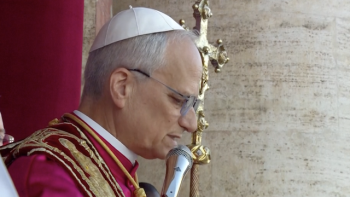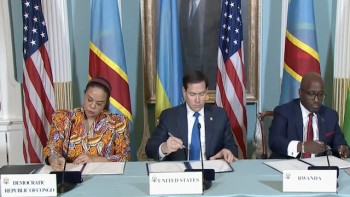As expected, the Rwandan dictator Paul Kagame is ignoring the warnings from the United States Government and others democracies against changing the Rwandan constitution to allow himself to cling to power (see our article here). Rwanda's Senate, mostly composed of Paul Kagame's cronies or stooges, on Tuesday November 17, 2015 unanimously approved a draft constitution to allow President Paul Kagame to seek a third term
in office. The decision by the Senate will be followed by a rubber stamp referendum that is not expected to face much opposition.
According to a nationwide motion campaign, less than a dozen Rwandans, handpicked by the Rwandan state security apparatus, out of 3.7 million adults Rwandans, have stated their opposition to the constitution revision. According to sources in various villages in Rwanda, the campaign was conducted by a paid plethora of ruthless intelligence and security services agents who roam and terrorize the countryside. The agents went house by house, in the middle of the night, with lists of household members and asked them to sign the petitions. That is how the 3.7 million people said YES to the constitutional change.
Following the Rwandan Senate vote, the U.S. State Department in Washington, has expressed "great concern" and has renewed its calls for General Paul Kagame to step down at the end of his term in 2017.
"We expect President Kagame to follow through on the commitments he has made previously to foster a new generation of leaders in Rwanda and to step down at the end of his current term in 2017," State Department spokesman Mark Toner said.
Asked by the US media whether the United States, one of the major aid donors to Rwanda, was considering suspending or reducing U.S. assistance to Kigali, Toner replied: "Not at this time."
The answer appears to constitute a veiled strong stance against Paul Kagame's attempts and in line with US government stated policy. Commenting on the attempts Under Secretary of State for Civilian Security, Democracy, and Human Rights Sarah Sewall during her trip to the Democratic Republic of the Congo in late October 2015, said, however, that if Kagame does decide to stay beyond his current term, it could impact U.S.-Rwanda relations:
"Rwanda, while it has made remarkable progress over the last decade against all odds –increasing economic growth and youth literacy, dramatically lowering child and infant mortality –has not kept pace with progress on the political front. There have been unmistakable efforts in that country to stifle critical voices in civil society, in the media, and in the political opposition. And those who speak out often live in fear and face harassment or intimidation. Some have simply disappeared. While we celebrate Rwanda’s progress, of course, sustaining it will require trust in the people and the respect for democratic process and fundamental human rights.
President Kagame has repeatedly stated his commitment to respect the constitutional term limit, and the United States expects him to keep his word,"
General Paul Kagame appears to play the nerves game. Based on the comments by the Senate President, Bernard Makuza, who is also General Paul Kagame's direct cousin, the changes will be approved in a referendum and General Paul Kagame, whose current term ends in 2017, could run for another seven-year term and then two five-year terms, possibly keeping him in power until 2034.
"But it all depends on his will," said Makuza.
General Paul Kagame is widely expected to ignore the calls by the United Stated Government and go ahead with the change. He gave the hint in a recent interview with News Africa Magazine published on October 20, 2015 (Kagame: I have not asked anyone to change constitution for me ), he tried to argue, without convincing, that he never sought to change the constitution but his arm is being twisted by the demands in supplication from the "Rwandan People".
US Government in A Tough Spot as Rwandan Paul Kagame's Decision Likely to Test Its Objectivity
Observers wonder how the US Government will behave once Paul Kagame ignores the warnings. In fact, the US Government has taken heavy handed measures against the Burundian dictator Pierre Nkurunziza, who recently decided to change the constitution to remain in power beyond two terms allowed by the constitution.
However, US Government did not do anything or followup with threats when it came to other African dictators, such as Ugandan Yoweri Museveni or Republic of Congo's Sassou Nguesso.
Now the question is: will the US Government continue to be tough against Burundian dictator Pierre Nkurunziza, while giving a free ride to Rwandan dictator Paul Kagame, his neighbor to the North?

















